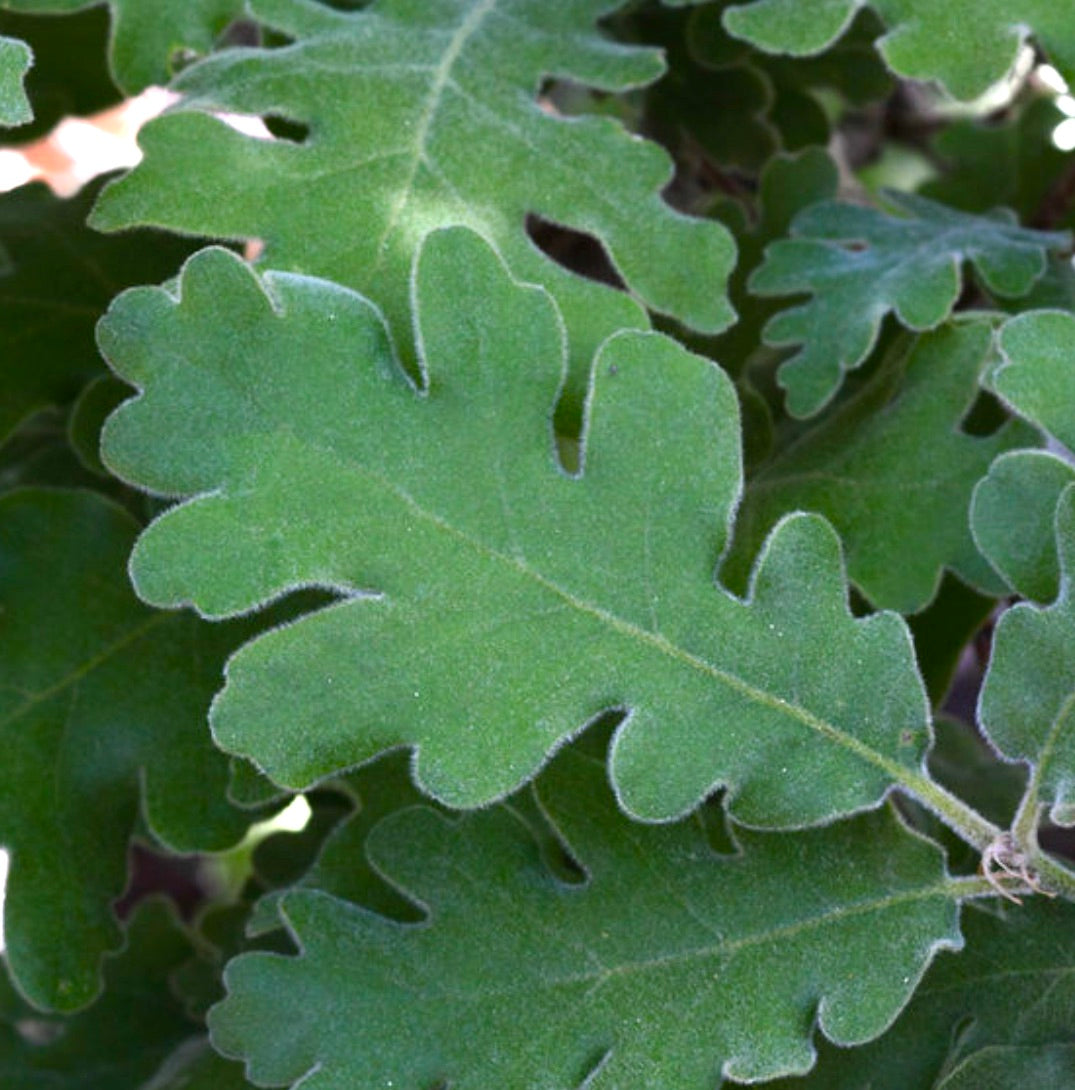- Catalogue Plants
Quercus pyrenaica 20-30cm
Quercus pyrenaica 20-30cm
Couldn't load pickup availability
Plant Description
Quercus pyrenaica, commonly known as Pyrenean Oak or Pyrenean Oak Tree, is a notable deciduous tree native to the mountainous regions of southwestern Europe, including the Pyrenees mountains and adjacent areas in Spain and France. This oak species is valued for its distinctive appearance and its ability to thrive in challenging mountainous terrain. Pyrenean Oak features a broad, rounded canopy of deeply lobed, dark green leaves that turn various shades of red, orange, or brown in the fall, creating a striking display of autumn foliage. It produces acorns that are an important food source for wildlife, including birds and mammals. With its resilience, adaptability to rocky soils, and ecological significance, Quercus pyrenaica is a sought-after choice for reforestation projects, parks, and landscapes in mountainous regions.
Cultivation: Cultivating Quercus pyrenaica, or Pyrenean Oak, can be successful when you follow these essential cultivation tips:
-
Climate: Pyrenean Oak thrives in mountainous and subalpine climates with cold winters and mild summers. It is well-suited to regions with high elevations.
-
Sunlight: Plant in a location that receives full sunlight to partial shade. Full sun is preferable for optimal growth and vibrant leaf color.
-
Soil: Pyrenean Oak is highly adaptable to rocky, well-draining soils commonly found in mountainous regions. It can tolerate various soil types, including loam, clay, and sandy soils.
-
Watering: Young trees require regular watering to establish deep roots. Once mature, Pyrenean Oak is generally drought-tolerant and can withstand dry conditions.
-
Fertilization: Established trees typically do not require fertilization. However, you can apply organic mulch around the base to improve soil quality.
-
Pruning: Minimal pruning is necessary for Pyrenean Oak. Remove dead or damaged branches and shape the tree as needed to maintain its desired form.
-
Pests and Diseases: These oaks are generally hardy and less susceptible to pests and diseases compared to some other oak species. Monitor for issues and take appropriate action if necessary.
-
Acorns: Allow Pyrenean Oak to produce acorns, which are an essential food source for wildlife, including birds and mammals. This contributes to the ecological value of the tree.
-
Propagation: Propagate Pyrenean Oak from seeds, which should be planted in the fall or stratified before planting. Keep in mind that growing from seeds may take several years to establish.
-
Reforestation: Consider using Pyrenean Oak in reforestation and afforestation projects in mountainous regions. Its adaptability to rocky terrain and ecological importance make it a valuable species for restoring natural habitats.
By following these cultivation tips, you can successfully grow and appreciate the unique beauty and ecological significance of Quercus pyrenaica, or Pyrenean Oak, in your garden, landscape, or reforestation efforts while ensuring its health and vitality.
vitality.
IMPORTANT: Please be aware that picture 1 show adult plant not for sale, the offer is for a plant in the dimension indicated in title description.
Disclaimer: Please keep on mind that the plant may have grown since pictured. Also be aware that most plants change across seasons. If present foliage could have been fallen or change in its color.
Botanical family: Fagaceae
Botanical genus: Quercus
Botanical species: Quercus pyrenaica
SKU:BA-1136-S
Cultivation
Cultivation
Additional information
Additional information
Plant Height: 20-30cm
Plant Diameter:
Picture Taken on:
Pot Size:
Grafted/Not Grafted:


